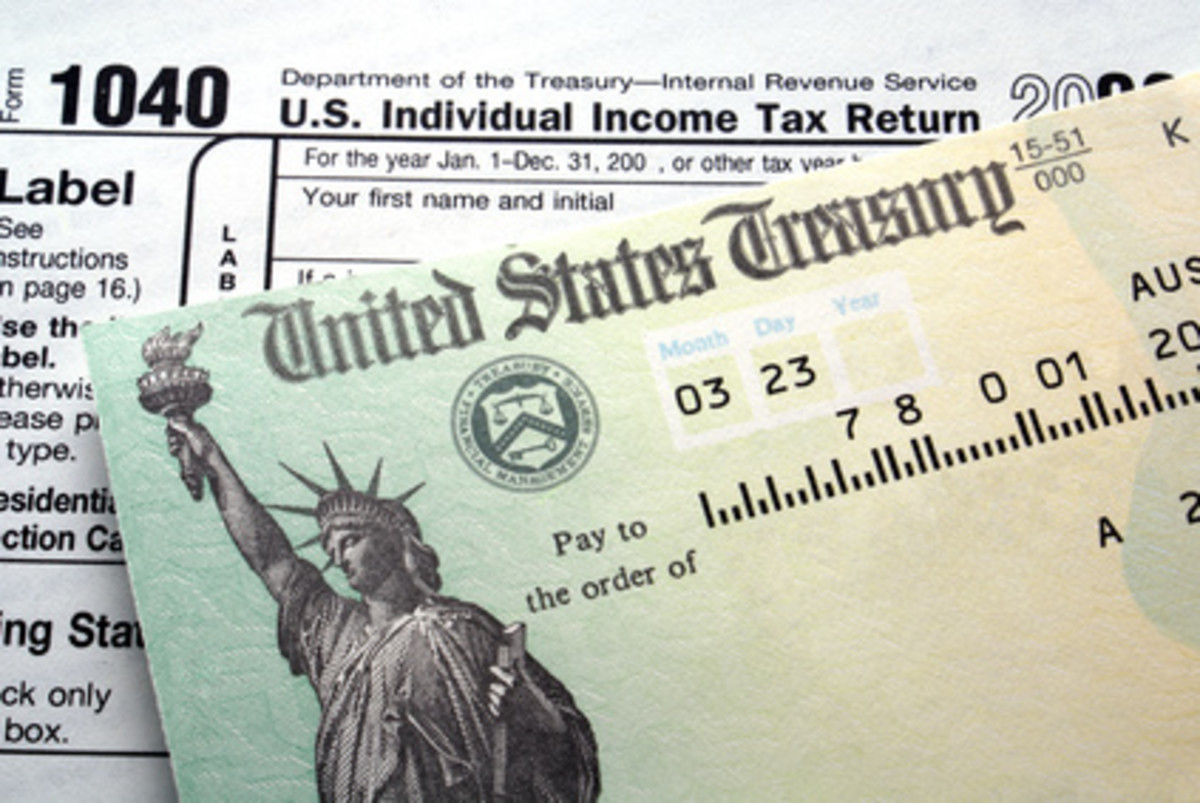IRS - How Not to Get Audited
Carefully Prepared Tax Return
We are once again in the dreaded tax filing season where we work on filing our tax returns hoping that we never get that letter from the IRS tax office telling us we are being audited.
This happened to me many years ago when I had done my own taxes, so I had no representation of a CPA or tax attorney. It was awful! I thought I had been careful, but they are quite particular, so let’s cover the red flags that will help you avoid an audit.
The latest figures from IRS state in 2016 a total of 147,964,324 tax returns were filed and 0.7% tax returns were audited, while 9.5% of large corporations were audited.
IRS Letter May Not Mean Audit
First, don’t panic if you receive a letter from the IRS as most letters involve minor issues, such as an arithmetic error. The IRS may owe you money, or you may owe the IRS a minor amount of money, and the interest which is currently 4%. The rate is recalculated every three months.
Most letters are due to simple human error. For instance, each year more than 1 million letters are sent out because people forgot to sign their returns.
What can you do to not wave those red flags that might cause you to be audited?
First, the IRS has decided this year to focus on those individuals that earn more than $100,000 annually. For years the IRS has been cracking down on abuses by the wealthy, partially because the abuses have been so flagrant. For example, in 2006, 8,252 returns with incomes of $200,000 or more showed no income tax liability.
They can afford expensive tax attorneys who find loopholes in the tax code, but it is not legal Tax evasion can land you in jail. This is very disgusting to those of us who don’t make that kind of money and still follow the law by paying our taxes. People who are in business for themselves also have higher odds of being audited.
RS Audit Statistics
IRS Tax Returns ----Returns Filed -----Returns Examined ----% Examined
Less than $25,000 -----59,211,700 ------1,076,945 ----------.81%
$25,000 to $50,000 ----27,263,000 -------259,794 . ----------58%
$50,000 to $100,000 ----17,019,200 ---------196,852 . -------62%
Greater than $100,000 --4,540,800 -------129,320 ---------1.66%
Several Common Ways of Triggering an Audit
Not claiming all of your income.
Make sure you include all of your income; yes even your income from Hubpages. Remember to include proceeds from stocks and bonds that you have sold, including dividend income, brokerage and bank accounts and any other investment where you have earned dividends or interest. If you are someone who claims earned income credit, which is a tax break for lower income individuals must be accurate as there are strict guidelines. You qualify if you have one child and your adjusted gross income is less than $33,241. If you are married and filing jointly without children or with one child you must have earned less than $37,783.
Reporting business losses:
Reporting a small business loss puts you in a higher possibility of being audited. If the loss is $5000 - $10,000 this is a red flag to the IRS. If you have given a tax donation of less than $250 you will need a statement, and if you gave more than $250 to a charitable organization you need a written letter for proof. If you’ve given household goods or clothing to a charitable organization you will also need a letter which includes a description of the items.
Using home office deductions:
Apparently the IRS thinks this is an area often abused, but you are entitled to claim home office expenses. You will need to prove that the home office is the primary place of the business, used for business meetings with customers or clients.The area you claim must be used exclusively for business
Write offs being higher than normal:
There is nothing wrong with claiming legitimate write offs as long as they are not outrageously high compared to your income. If the IRS notices the write offs are disproportionately high compared to your income you will likely be audited. So if you have a lot of deductions make sure you can back them up with the proper paper work
Other Red Flags for the IRS
- Claiming tax shelter investments losses on your tax return.
- When you own or work in a business, which receives cash and/or tips in the normal course of business.
- Large business expenses in relation to your income on your tax return.
- Rental expenses on your tax return.
- A prior IRS audit that resulted in a tax deficiency.
- An informant has given information to the IRS.
- People with their own businesses often get audited over claimed mileage. You must keep a daily log, ideally a notebook in your car, and write down all business related mileage when you are also using that car for personal use some of the time. This is also true for people who claim medial mileage.
- If you owe back taxes, contact the IRS and make an offer. Compromise so you have a payment plan that your can live with. They will usually work this out with you.
What Happens When You File Your Return?
What happens once you file your return? “IRS computers compare it against the national Discriminate Information Function (DIF) system average. The IRS calculates the DIF score by using a closely-guarded formula.
Tax returns with the highest DIF scores are scrutinized by experienced IRS examining officers who determine which tax returns provide the best chance for collecting additional taxes, interest, and tax penalties.
Avoiding the Dreaded Tax Audit
Summary
Of course, with the new tax bill next year will have some changes, but this year remains the same.
To avoid an audit certainly report all your income and all your expenses as long as you can back them up with documentation. Carefully double check your math. Be sure and sign your tax forms and good luck.
Tax Audits
Have you ever been audited?
The copyright, renewed in 2018, for this article is owned by Pamela Oglesby. Permission to republish this article in print or online must be granted by the author in writing.








